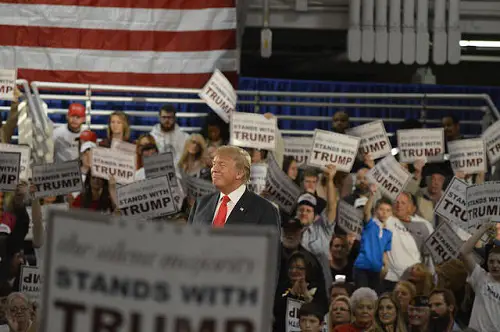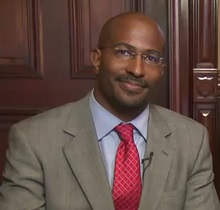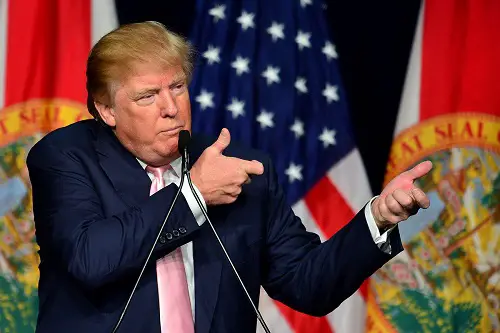|
TRANSLATE THIS ARTICLE
Integral World: Exploring Theories of Everything
An independent forum for a critical discussion of the integral philosophy of Ken Wilber
 Elliot Benjamin is a philosopher, mathematician, musician,
counselor, writer, with Ph.Ds in mathematics and psychology and the author of over 230 published articles in the fields of humanistic and transpersonal psychology, pure mathematics, mathematics education, spirituality & the awareness of cult dangers, art & mental disturbance, and progressive politics. He has also written a
number of self-published books, such as: The Creative Artist, Mental Disturbance, and Mental Health. See also: www.benjamin-philosopher.com.
SEE MORE ESSAYS WRITTEN BY ELLIOT BENJAMIN
US President Trump
The Ultimate Outcome of Social Media Addiction
and Unbridled Narcissism in America?
Elliot Benjamin

Putting everything together, it appears to me that what we have here is a country that is becoming more and more “mindless”.
Is it in the realm of possibility that Donald Trump could be the next president of the United States? As much as I would like to dismiss this idea as ludicrous, there are people I have much respect for who think this is a very real danger, such as progressive activist Van Jones[1] and cybernetics philosopher Michael Lissack[2]. Jones believes that if enough democrats underestimate the power and influence that Trump is able to wield, then yes we may very well be faced with the horror show of Donald Trump becoming the next president of the United States. Jones focuses upon what he views as progressives mistakenly thinking that Trump will alienate too many people to win the election, through a combination of his insensitive and rude outbursts, his lack of knowledge of government and world policies, and the demographics of the election[1]. Furthermore, Jones stresses the fact that Trump has mastered both social media and reality TV, and he believes that these vehicles could be the gateway to the US presidency for Trump.
 Van Jones
Van Jones
Lissack goes even further, in that he predicts (against what he would like to see happen) that Trump will become president. Lissack focuses upon the “emotion” that Trump is able to generate in people, through his ability to make people feel like he is working for “them.” Lissack believes that people are jumping on the Trump bandwagon largely because Trump represents change, whereas Clinton represents the status quo. Lissack also conveys that it is not “facts and figures” that many people want, which is what Clinton offers people, but rather the kind of confident assurance that Trump conveys with his empty sound bites, such as “Make America Great Again.”[2]
I am by no means “in the know” about politics, but I do think that both Jones and Lissack have conveyed some very important considerations here, which includes Jones' observation that the Republican party is begrudgingly starting to get behind Trump to “unify” the party[1]. And I would go further, in the sense that I think this whole phenomenon of Trump having already essentially secured the Republican nomination for president, which I must say makes me feel embarrassed to be a United States citizen, is very much a function of our country's social media addiction and unbridled narcissism, which we share with the Western world, as I have written about in previous essays[3].
 Michael Lissack
Michael Lissack
Lissack strongly believes that a Trump presidency is inevitable, and is promoting the establishment of “Trump Studies.”[2] In contrast, Jones is using his promotion of the possibility of this nightmare reality occurring, that I believe he hates more than words can describe, to motivate the progressive forces to not underestimate Trump and to take action to insure that the nightmare of a Trump presidency never occurs. And I must say that I prefer Jones' analysis to that of Lissack, and I am thankful that Van Jones is alarming people to take action to prevent what I view as the ultimate outcome of social media addiction and unbridled narcissism in America.
George Skelton, a reporter for Capitol Journal, puts the phenomenon of Donald Trump becoming the United States Republican presidential nominee in stark terms:
How an insulting, ill-mannered, public policy ignoramus could be chosen by voters to be the presidential nominee of a major party will be pondered for years, probably decades…..why Donald Trump—someone who'd be sent to bed without supper, with soap in his mouth, if he were a kid in an earlier generation?[4]
According to Skelton, the two main reasons for Trump rising to this “unpredictable ascent” despite acting like a “blowhard bully,” are the broadcast media and social media. Skelton sums up the effects on voters from the broadcast media factor as follows:
In short, they hear rudeness and reckless talk in the broadcast media and gradually it becomes acceptable in the exercise of democracy.[4]
However, I am especially interested in Skelton's second factor of social media, which I think Skelton pegs right on the mark:
It nurtures short attention spans, the craving for instant gratification and impersonal barbaric behavior. No time for serious thinking or boning up on substance. A quick stimulating hit of social recognition will suffice. And no need for civility when you're not looking someone in the eye.[4]
Corroborating what I have described in my articles on social media addiction, Skelton cites statistics on technology addiction and the resulting repercussions that he learned about from an expert on social media:
50% of teens “feel addicted” to mobile devices and 59% of parents agree that their kids, indeed, are addicted….They can't put [a smartphone] down….What's the harm? A lack of empathy, lack of quality human relationships, an inability to pay attention.[4]
Putting widespread social media addiction in America together with voter behavior:
It's transforming all aspects of human behavior, including the political side….Trump understands reality TV. This election is a reality TV show. Trump is addicted to tweeting. There's no disputing that. The world of instantaneous thinking lends itself to less thinking….People want lots of bits of information, but don't necessarily synchronize it into a coherent field. In a world where everyone is addicted to cellphones, there's less reflection. That provides the ability for people like Donald Trump to bully everyone on Twitter. It's pretty troubling….The real story of this election is it's going to get the hall of shame award. But the candidates aren't shamed anymore. That's because so many voters no longer consider obnoxious behavior shameful. And not enough are willing to demand more than a simple pledge to “make America great again.”[4]
And to further explain the Trump phenomenon, I believe that a very related factor to American widespread social media addiction is American unbridled narcissism[3]. I think it is the narcissism epidemic in Amercia which fuels Trump's excessively egoistic narcissistic personality. The extent of legitimate diagnosis of Trump in terms of clinical narcissism such as Narcissistic Personality Disorder is debatable[5, 6]. However, the reality of Trump's extreme narcissism is not debatable, as impactfully described by a New York Times reporter:
I was and am transfixed by...the scope and intensity of his hunger for adulation…. It's bottomless, topless, endless, insatiable. He gazed upon a teeming arena of admirers and neither their presence nor their numbers was quite enough.[5]
But let's look at some of the primary symptoms for Narcissistic Personality Disorder listed in the Diagnostic and Statistical Manual for Mental Disorders, which includes:
a grandiose sense of self-importance, a preoccupation with unlimited fantasies of success, power, and brilliance; a belief that one is special; a consistent requirement for excessive admiration; a sense of entitlement; the taking advantage of others for one's own gain; a lack of empathy for others, and a hyper-sensitivity to criticism.[6]
As illustrated by Jean Twenge and Keith Campbell in their book The Narcissism Epidemic: Living in the Age of Entitlement,[7] these factors are all prevalent in our American narcissistic social media addicted society as what is nowadays considered to be “normal”[3].
As the editor-at-large for Time Magazine describes:
It's a pretty safe bet you'd like Donald Trump's money. It's likely you wouldn't mind Trump's celebrity. And if you have a taste for politics, well, you wouldn't half mind being the leading contender for the presidential nomination of a major political party.[5]
Putting everything together, it appears to me that what we have here is a country that is becoming more and more “mindless” as our social media and technology addiction continues to expand and envelop more and more of its inhabitants, fueling the above narcissistic qualities as the temperament of what is becoming “normal” in America. And it is undeniable that Donald Trump is a master at manipulating through social media this lack of deep thinking coupled with the narcissistic envy to have the abundant wealth and power that he has. Thus we are now witnessing the “Trump phenomenon,” and I can only hope that in the end it is Van Jones and not Michael Lissack who has the most accurate view of what is happening here. No I do not want to live in a country governed by President Trump, which I believe would be the ultimate outcome of social media addiction and unbridled narcissism in America.

References
1) See Van Jones (2016). "Van Jones to Dems: Trump Could Really Win the Presidency." Retrieved from http://www.triplepundit.com/2016/05/van-jones-dems-trump-really-win-presidency/#
2) See Michael Lissack (2016). "It's Over But For the Counting." Retrieved from htps://usaonlinetoday.com/michael-lissack-its-over-but-for-the-counting/. Available from Huffington Post.
3) See Elliot Benjamin's 2015 articles: "Do We Live in a Social Media Technology Addicted Society?" and "Integral Overstretch, Social Media Addiction, and Unbridled Narcissism". Retrieved from www.integralworld.net; and "Humanistic Antidotes for a Social Media Technology Addicted Society." International Journal of Education and Human Developments, 1(3). Available from pjpub.org.
4) See George Skelton (2016). "How Did Trump Become the Presumptive Nominee? Blame Twitter." Retrieved from http:www.latimes.com/politicis/la-pol-sac-skelton-donald-trump-phenomenon-20160505-story-html
5) See Jeffrey Kluger (2016). "What Donald Trump Can Teach You About the Narcissists in Your Life." Retrieved from http://time.com/4257/trump-narcissism-2/
6) See Scott Norrholm (2016). "Diagnosing the Trump Phenomenon: Column", USA TODAY. Retrieved from
http://www.usatoday.com/story/opinion/2016/03/23/donald-trump-elections-2016-diagnosis-narcissism-personality-disorder-column/82128174/
7) See Jean Twenge and Keith Campbell (2009). The Narcissism Epidemic: Living in the Age of Entitlement. Atria.
|
 Elliot Benjamin is a philosopher, mathematician, musician,
counselor, writer, with Ph.Ds in mathematics and psychology and the author of over 230 published articles in the fields of humanistic and transpersonal psychology, pure mathematics, mathematics education, spirituality & the awareness of cult dangers, art & mental disturbance, and progressive politics. He has also written a
number of self-published books, such as: The Creative Artist, Mental Disturbance, and Mental Health. See also: www.benjamin-philosopher.com.
Elliot Benjamin is a philosopher, mathematician, musician,
counselor, writer, with Ph.Ds in mathematics and psychology and the author of over 230 published articles in the fields of humanistic and transpersonal psychology, pure mathematics, mathematics education, spirituality & the awareness of cult dangers, art & mental disturbance, and progressive politics. He has also written a
number of self-published books, such as: The Creative Artist, Mental Disturbance, and Mental Health. See also: www.benjamin-philosopher.com.



